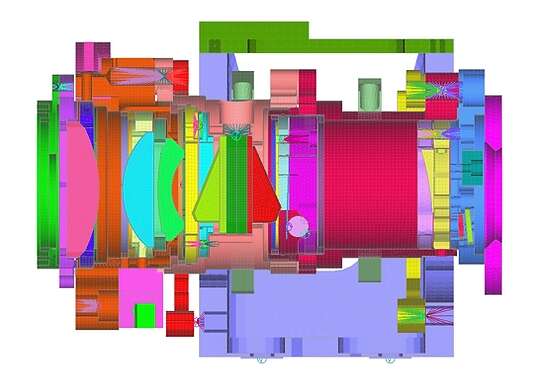Quartus Engineering boasts extensive expertise in designing optical systems across diverse industries and operational environments. With innovations shaping the future of optical technology, this engineering discipline plays a pivotal role in fields ranging from aerospace to medical devices. This article delves into the importance of optical design engineering, its challenges, applications, and future trends.
Introduction: The Role of Optical Design Engineering
Optical design engineering involves the meticulous development of optical systems, which are integral to numerous technological advancements. From crafting precision lenses for imaging systems to designing complex optical instruments for aerospace, this discipline requires a combination of technical expertise, creativity, and industry insight.
At Quartus Engineering, the emphasis lies in providing solutions that meet stringent operational requirements, ensuring reliability and performance in the most demanding environments.
The Fundamentals of Optical Design Engineering
Understanding the Core Principles
Optical design engineering relies on physics and advanced computational tools to create systems that manipulate light effectively. These systems often include:
- Lenses: For focusing or dispersing light in imaging and projection applications.
- Mirrors: Used in high-precision instruments such as telescopes or laser systems.
- Waveguides: Enabling efficient light transmission in compact devices.
Challenges in Designing Optical Systems
Developing optical systems comes with unique challenges, including:
- Environmental Stress: Optical components must endure varying temperatures, pressures, and humidity levels.
- Precision Requirements: Manufacturing tolerances are exceptionally tight, as even slight deviations can compromise system performance.
- Multi-Disciplinary Integration: Effective design demands collaboration between optical, mechanical, and electrical engineers.
Quartus Engineering’s broad expertise addresses these challenges, providing robust solutions across industries.
Applications of Optical Systems in Key Industries
Aerospace and Defense
In aerospace, optical systems are critical for navigation, surveillance, and communication. High-performance lenses, mirrors, and sensors are designed to operate under extreme environmental conditions, ensuring reliability in mission-critical scenarios.
For defense, advanced optical design engineering underpins systems like laser guidance, infrared imaging, and precision targeting. Quartus Engineering’s designs are crafted to excel in these high-stakes environments.
Healthcare and Life Sciences
The medical industry heavily relies on optical systems for diagnostics and treatment. Imaging tools such as microscopes and endoscopes use precision-engineered optical components to deliver high-resolution images. Laser systems, guided by advanced optical designs, are utilized in procedures ranging from eye surgery to cancer treatment.
Consumer Electronics
From smartphone cameras to augmented reality (AR) devices, optical systems are integral to consumer electronics. Designing compact yet powerful optical solutions is a growing focus area, driven by the demand for high performance and miniaturization.
Future Trends in Optical Design Engineering
As industries evolve, so does the role of optical systems designing. Emerging trends include:
- Artificial Intelligence (AI) Integration: AI-powered tools are revolutionizing design optimization, enabling engineers to develop more efficient and innovative solutions.
- Lightweight Materials: Advanced composites and polymers are being adopted to reduce the weight of optical components, particularly in aerospace applications.
- Quantum Optics: With the rise of quantum computing and cryptography, optical systems are being designed to handle quantum-level precision.
- Sustainability: Eco-friendly materials and energy-efficient designs are becoming a priority in optical engineering.
Quartus Engineering remains at the forefront of these advancements, leveraging its extensive experience to shape the future of optical systems.
Conclusion: Shaping the Future with Optical Design Engineering
In a world where precision and innovation drive progress, optical design engineering serves as a cornerstone for technological advancements. From aerospace to consumer electronics, its impact is vast and growing.
With its broad expertise across industries and operational environments, Quartus Engineering continues to deliver groundbreaking optical solutions, ensuring reliability, performance, and excellence. The future of optical systems is bright, and with leaders like Quartus, the possibilities are limitless.

